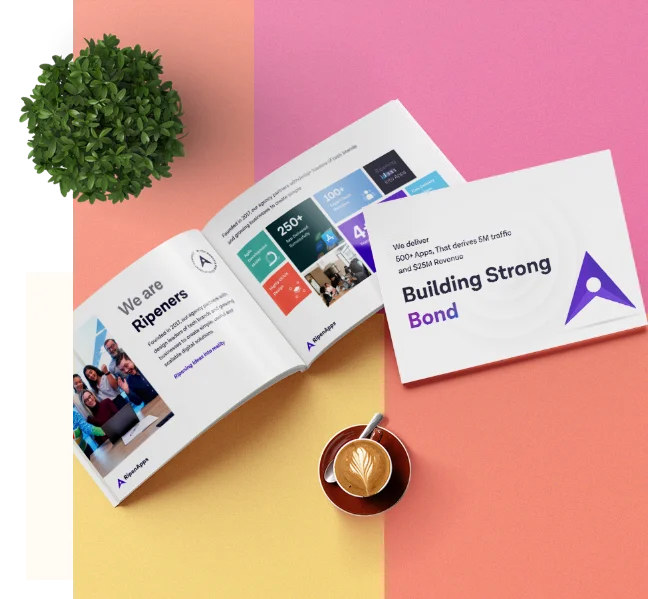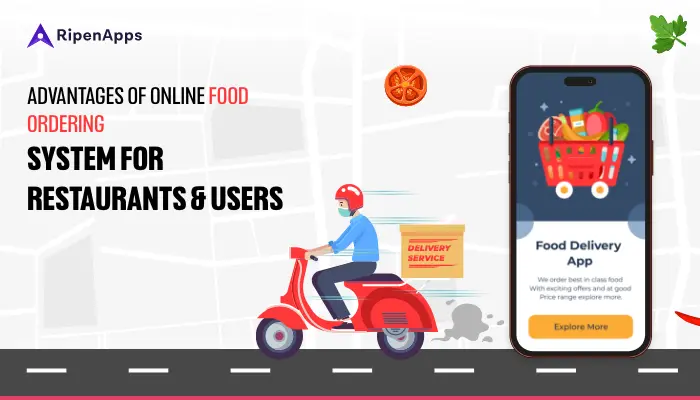Do you remember an era when 500 MB of data was enough for the public for a month? Fast forward to today, even 1 GB/Day of the internet is not enough for us. It is because of the revolutionary innovations in mobile apps. Whether it is about communication, entertainment, or productivity, mobile apps have revolutionized the way we interact with our phones. This in turn makes mobile applications a successful venture.
But, “not all mobile apps enjoy success!”
Nearly 80% of mobile app startups fail in the first year leaving the developers, clients, and users frustrated. However, as a business or developer, if you know the key reasons for mobile app failure you can make your mobile app a success. Hence, this blog explores the reasons behind mobile app failure and offers insights into how to solve these issues.
Table of Contents
Reasons For Mobile App Failure
From technical to monitoring and strategies, there can be ample reasons for the mobile app failure. However, being a renowned mobile app development agency Canada, USA, India, and worldwide, we have compiled the key reasons that can cause the failure of a mobile app idea.
Unsatisfactory User Experience (UX) Design
One of the primary reasons for mobile app failure is not focusing on the user experience. Apps that are difficult to navigate, slow to load or have confusing interfaces are destined to fail. Users expect intuitive and visually appealing designs that make their interactions seamless.
Solution: Invest in user experience design and ui/ux tools. Conduct user research, create user personas, and perform usability testing to ensure your app’s design meets users’ needs and expectations.
Lack of Market Research
Building an app without proper market research is a recipe for failure. If you don’t understand your target audience, their pain points, and what they’re looking for in an app, you risk creating something that nobody wants.
Solution: Conduct thorough market research to identify your target audience, analyze competitors, and understand market trends. Use this information to shape your app’s features and marketing strategy.
Inadequate Testing
Skipping or rushing through the testing phase can lead to app failure. Bugs, crashes, and performance issues can frustrate users and damage your app’s reputation. 58% of iOS apps crash due to insufficient testing.
Solution: Perform rigorous testing throughout the development process. Utilize automated testing tools, conduct beta testing with real users, and address issues promptly.
Unsatisfactory Performance
Slow loading times, crashes, and frequent glitches can drive users away. Mobile app performance is a crucial factor in its success.
Solution: Optimize your app’s performance by minimizing unnecessary features, reducing image sizes, and caching data. Regularly update and maintain your app to fix performance issues.
Ignoring Platform Guidelines
Each mobile platform (iOS and Android) has its own set of app submission guidelines and design principles. Ignoring these guidelines can result in an app that feels out of place on a particular platform.
Solution: Adhere to platform-specific design and development guidelines to ensure your app integrates seamlessly with the operating system. This will enhance user experience and reduce the likelihood of rejection from app stores.
Ineffective Marketing
Even a well-designed app can fail if it doesn’t reach its target audience. Poor marketing strategies or insufficient promotion can lead to low adoption rates.
Solution: Develop a comprehensive marketing plan that includes app store optimization (ASO), social media marketing, email marketing, and paid advertising. Engage with your audience and create a buzz around your app’s launch.
Ignoring User Feedback
Ignoring user feedback or failing to address user complaints can lead to app failure. Users’ needs and expectations can change over time, and it’s essential to adapt accordingly.
Solution: Encourage user feedback and actively listen to your users. Regularly update your app based on user suggestions and fix reported issues promptly. This will help retain existing users and attract new ones.
In-exact Monetization
Choosing the wrong monetization strategy can affect your app’s success heavily. Aggressive ads, high subscription fees, or intrusive in-app purchases can drive users to uninstall your app.
Solution: Select a monetization strategy that aligns with your target audience and app’s value proposition. Offer a free version with ads or limited features and provide premium options for those willing to pay.
Lack of Continuous Improvement
Mobile app development is an ongoing process. Failing to update and improve your app can result in it becoming outdated and irrelevant.
Solution: Continuously invest in app updates and enhancements. Keep up with the latest technology trends, add new features, and refine existing ones to stay competitive in the market.
Security and Privacy Concerns
Security breaches and privacy violations can erode user trust and lead to app failure. Users expect their data to be protected and their privacy respected.
Solution: Implement robust security measures, such as encryption, secure authentication, and regular security audits. Clearly communicate your app’s privacy policy and obtain user consent for data collection and usage.
Tips For Ensuring Success For Your Mobile App Idea
Although, we have explained the reasons for mobile app failures with their solutions above. But, if you want to know some quick tips that global mobile app development companies and app businesses follow, then here are the quick tips for ensuring success.
- Start with a Strong Idea: Conduct thorough market research to identify a compelling app idea that addresses a genuine need in the market.
- Prioritize User Experience: Invest in user-centric design and ensure your app offers an intuitive and delightful user experience.
- Test Rigorously: Test your app thoroughly during development and conduct beta testing with real users to catch and fix issues.
- Optimize Performance: Continuously monitor and optimize your app’s performance to ensure smooth operation.
- Follow Platform Guidelines: Adhere to platform-specific guidelines to ensure your app integrates seamlessly with the operating system.
- Develop a Comprehensive Marketing Plan: Create a detailed marketing strategy to reach your target audience and promote your app effectively.
- Listen to User Feedback: Actively engage with users, listen to their feedback, and make necessary improvements.
- Choose the Right Monetization Strategy: Select a monetization strategy that aligns with your audience and provides value.
- Continuously Improve: Regularly update and enhance your app to keep it relevant and competitive.
- Prioritize Security and Privacy: Implement robust security measures and respect user privacy to build trust.
#1 Key is to Improve Continuously and Adapt User Needs
Nearly 80% of mobile apps fail within first year of the startup. Mobile app failure can be a result of various factors, from poor design to inadequate marketing and security issues. However, by addressing these issues proactively and following the solutions outlined in this article, you can increase your app’s chances of success.
Remember that mobile app development is an ongoing journey that requires continuous improvement and adaptation to meet user needs and market trends.
How Do RipenApps Fail-Safe Your Mobile App?
User experience has always been a priority for us and we ensure that your users are delighted when they use your applications. Further, our testing team rigorously tests your application in multiple phases starting right from the development phase ending to the beta testing with real users. With nearly a decade of experience, our mobile app developers are up to date with the platform guidelines while uploading the applications to market stores. For every client, we have ensured utmost security and privacy standards to build trust.











 India
India USA
USA Australia
Australia Canada
Canada UK
UK UAE
UAE
